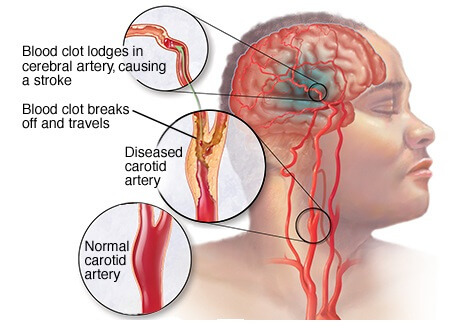Brain Hemorrhage or Intracerebral Hemorrhage Surgery
India
-
Our Price USD 5400
-
Hospital Price USD 6000
-
You Save : USD 600
Booking Amount: USD 540. Pay Remaining 90% at the hospital.
Book NowAdditional Credit
Among the important extras we offer as part of the Additional Credit are the following:
-
Site Tourism For The Patient & Attendant
-
Airport Pick & Drop Service
-
Ambulance service at airport
-
Priority appointments with The Doctor
-
Cancel Easily Anytime with Full Refund
-
Room Upgradation
-
Free Online Doctor Consultation Valued at USD 20
-
Free hotel Stay for 5 to 7 days Accordingly
-
Welcome Kit at Arrival
-
Interpreter
-
Medical Visa Assistance
What is Included?
- Doctor consultation charges
- Lab tests and diagnostic charges
- Room charges inside hospital during the procedure
- Surgeon Fee
- Cost of implant
- Nursing charges
- Hospital surgery suite charges
- Anesthesia charges
- Routine medicines and routine consumables (bandages, dressings etc.)
- Food and Beverages inside hospital stay for patient and one attendant.
What is not Included?
- Extra Radiology Investigations
- Healthcare Professionals Charges of other consultations.
- Other Requested Services such as Laundry etc.
- Additional Pharmaceutical Products and Medicines After Discharge from Hospital.
- Management of Conditions Unrelated to Procedures or Pre-Existing.
- The cost of any additional implants will be in addition to the package cost.
Package Description
Brain Hemorrhage or Intracerebral Hemorrhage Surgery:
A qualified neurosurgeon can remove the hematoma using one of four surgical methods: Open surgery with craniotomy: A section of the skull is removed and open surgery is performed to drain the hematoma and repair the damaged blood artery.
Disease Overview:
Brain Haemorrhage
Stroke can cause a brain haemorrhage. It occurs when a brain artery bursts, causing localised bleeding in the surrounding tissues. Brain cells die as a result of the haemorrhage.
Cerebral haemorrhages, intracranial haemorrhages, and intracerebral haemorrhages are all terms used to describe a bleed in the brain. Approximately 13% of strokes are caused by them.
Because certain brain haemorrhages may be debilitating or fatal, it's critical to seek medical attention as soon as possible if you suspect someone is suffering from one.
Swelling occurs when blood from a traumatic injury irritates brain tissues. Cerebral edoema is what this is called. A hematoma is formed when blood pools and forms a bulk. These situations raise pressure on adjacent brain tissue, reducing critical blood flow and causing brain cells to die.
Inside the brain, between the brain and the membranes that surround it, between the layers of the brain's covering, or between the skull and the brain's covering, bleeding can occur.
Disease Signs and Symptoms:
A brain haemorrhage can cause a variety of symptoms. They are determined by the location of the bleeding, its intensity, and the quantity of tissue involved. Symptoms usually appear out of nowhere. They may deteriorate with time.
A brain haemorrhage might be the cause of any of the symptoms listed below. This is a life-threatening situation, so dial 911 or get to the nearest emergency facility right once. Among the signs and symptoms are:
- A strong headache appears out of nowhere.
- Seizures that have never happened before
- An arm or a leg that is weak
- Vomiting or nausea
- Lethargy; decreased alertness
- Visional shifts
- Numbness or tingling
- Speech difficulty (or inability to hear speech)
- Swallowing problems Difficulty writing or reading
- Hand tremors, for example, are a result of a loss of fine motor abilities.
- Coordination problems
- Loss of equilibrium
- A peculiar perception of taste
- Consciousness loss
Keep in mind that illnesses other than brain haemorrhages might produce many of these symptoms.
Disease Casues:
Brain haemorrhages can be caused by a variety of conditions. Among the most frequent are:
Trauma to the head. For those under the age of 50, injury is the most prevalent cause of brain haemorrhage.
Blood pressure that is too high. This chronic illness can cause blood vessel walls to deteriorate over time. Untreated high blood pressure is a primary cause of brain haemorrhages that may be avoided.
Aneurysm. This occurs when the wall of a blood vessel weakens and expands. It has the potential to burst and haemorrhage into the brain, resulting in a stroke.
Anomalies of the blood vessels (Malformations of the arteries and veins) Blood vessel problems in and around the brain might be present at birth and not detected until symptoms appear.
Amyloid angiopathy is a kind of amyloid angiopathy. This is a blood vessel wall irregularity that can emerge as a result of age or excessive blood pressure. Before creating a big bleed, it may create a series of minor, undetectable bleeding.
Disorders of the blood or bleeding. Both haemophilia and sickle cell anaemia can cause a reduction in blood platelets and coagulation. Blood thinners might potentially put you at danger.
The illness of the liver. This disorder is linked to an increase in overall bleeding.
Tumors of the brain.
Disease Diagnosis
Your doctor will initially inquire about your brain bleed symptoms before making a diagnosis of a brain haemorrhage. They'll then try to find the cause of the bleeding. Your doctor may request a CT scan, an MRI, or one of the following tests to do this:
Angiography: A catheter is placed into an artery and threaded through the circulatory system to the brain during an angiogram. After that, a dye is put into the catheter. On X-rays, this dye makes blood flow visible.
A dye is injected directly into the circulation during a computed tomography angiography (CTA) procedure. On a CT scan, this dye makes it simple to detect the arteries in your brain.
Exam of the cerebrospinal fluid: The presence of blood in this fluid might signify a number of things.
A lumbar puncture is a procedure that involves inserting a needle into the lower back A lumbar puncture, often known as a spinal tap, is another approach to diagnose a brain bleed.
Disease Treatment:
Treatment for a brain bleed is determined on the extent of the bleed, its location inside the brain, and the degree of edoema it generates. Hemorrhage therapies may include the following if your doctor has determined the source of the bleeding:
BrainPath surgery: This method allows your surgeon to remove a tumour or blood clot through a tiny conduit, or port, in your brain. When compared to traditional open surgery, it usually leaves less scarring, has fewer problems, and takes less time to recuperate.
Traditional surgery may be required to drain blood from the brain or to repair damaged blood arteries in rare circumstances.
Draining the fluid that surrounds the brain allows the hematoma to spread without causing damage to the brain cells.
Drugs are used to treat high blood pressure, seizures, and migraines.
A long, thin tube is threaded through blood arteries until it reaches the damaged location, called a catheter.
Physical, occupational, and speech therapy are all brain bleed therapies that can help people restore brain functions (like speaking) that have been harmed by the haemorrhage.
Information related to Treatment
Package Details
Days in Hospital
5 Days
Days in Hotel
*
7 Days
Room Type
Private
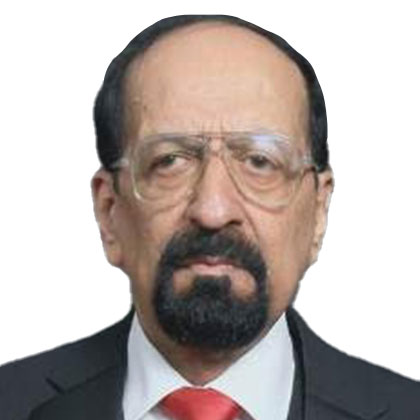
Treating Doctor
Dr. P. N. Renjen
Neurologist- Stroke (Thrombolytic Therapy), Botox Therapy for Post Stroke Spasticity, Surgical Epilepsy, DBS (Deep Brain Stimulation) and Headache, Celebrovasculkar Surgey
Indraprastha Apollo Hospitals, New Delhi New Delhi, India
36 Years of Experience

Treating Doctor
Dr Rahul Gupta
Neuro surgeon- Spine Surgery, Brain Tumour Surgery, Endovascular Neurosurgeon, microscopic surgery, Meningiomas, Craniopharyngioma, Brain Tumor Surgery, Cranio Vertebral anomalies, Intraventricular Tumour Surgery, Skull Base Anterior Surgery, Pituitary Adenoma including endonasal, Endoscopic Acoustic Schwanomas, CSF rhinorrhia, Cerebrovascular Neurosurgery
Fortis Hospital Noida Noida, India
27 Years of Experience
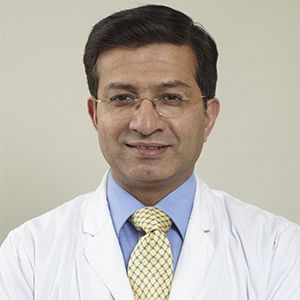
Treating Doctor
Prof. (Col.) Dr. Bipin Walia
Neuro surgeon- Spine Surgery, Brain Tumour Surgery, Minimally Invasive Spine Surgery, Kyphoplasty, Brain suite, Laminectomy, Traumatic brain injury (tbi) treatment, Cervical Disc Replacement
Max Super Speciality Hospital New Delhi, India
26 Years of Experience
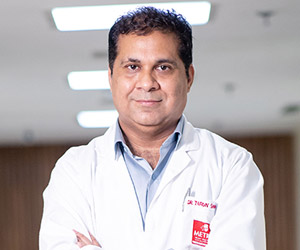
Treating Doctor
Dr Tarun Sharma
Neuro surgeon,Spine Surgeon- Peripheral nerve, Pediatric neurosurgery, Epileptic Surgery, Vagus nerve stimulation (VNS) therapy, Dural arteriovenous fistulas (DAVFs) of the brain and spinal cord, Foot Drop, Foot Drop Spinal Surgery, Petrosal Sinus Sampling
Metro Hospital (Heart Institute with Multispeciality) Faridabad, India
18 Years of Experience
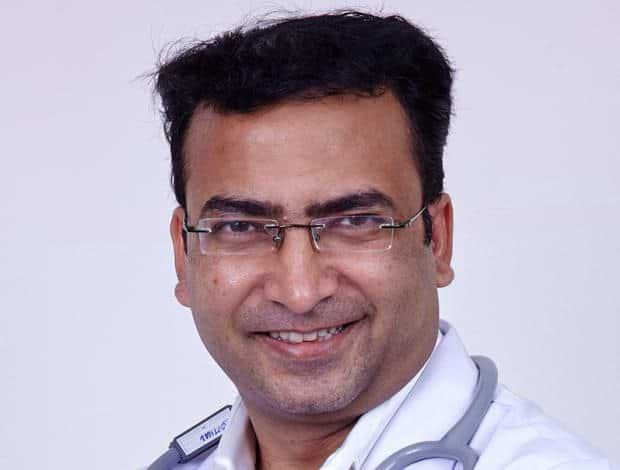
Treating Doctor
Dr. Praveen Gupta
Neurologist- Stroke Intervention, Stroke Rehabilitation, Celebral Palsy, Advanced Second line management for multiple scleoris, Epileptic Surgery, DBS Surgery
Fortis Memorial Research Institute Gurgaon, India
18 Years of Experience
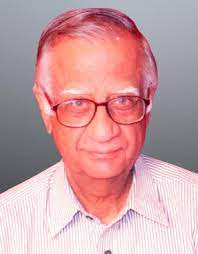
Treating Doctor
Dr. Ravi Bhatia
Neuro surgeon- Neuro Oncology, Craniovertebral Junction (CVJ) Anomalies, Brain and Spine Tumors, Celebrovasculkar Surgey
Indraprastha Apollo Hospitals, New Delhi New Delhi, India
60 Years of Experience
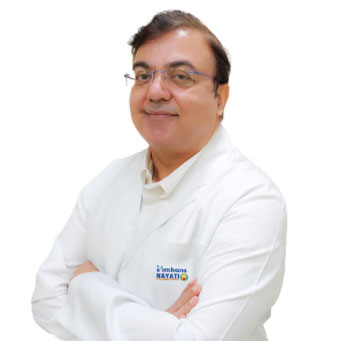
Treating Doctor
Dr. Shamsher Dwivedee
Neurologist- Alzheimer Specialist, Epilepsy Disorder, Stroke Specialist, Headache Specialist, Sleep Disorder, Parkinson's Disease, Dementias, Neuromuscular Disorders
Vimhans Nayati Super Speciality Hospital New Delhi, India
33 Years of Experience

Treating Doctor
Dr. Asha Kishore
Neurologist- Ankle surgery, Knee Replacement, Hip resurfacing with computer navigation, Anthroscopic Meniscus Surgery, ACL Reconstruction Procedure
Aster Medcity, Kochi Cochin, India
31 Years of Experience
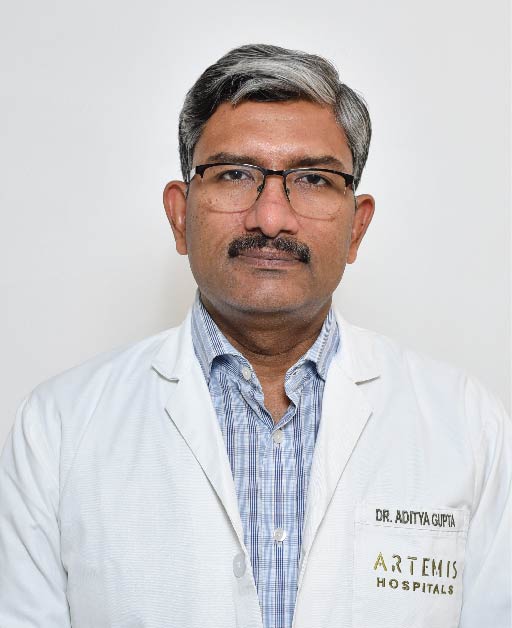
Treating Doctor
Dr. Aditya Gupta
Neuro surgeon- Cerebrovascular Surgery, Movement disorder, Deep brain Stimulation, Brain Tumor Surgery, Nerve and brachial plexus surgery, Rradiosurgery, Epilepsy Surgery, Stereotactic Radio Surgery (SRS)
Artemis Hospitals Gurgaon, India
22 Years of Experience
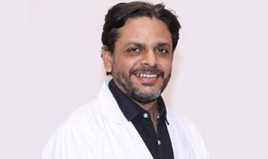
Treating Doctor
Dr Sumit Sinha
Neuro surgeon- Spine Surgery, Minimal Invasive Neurosurgery, Peripheral Nerve Surgery, Endoscopic Neurosurgery
Paras Hospitals Gurgaon, India
17 Years of Experience

